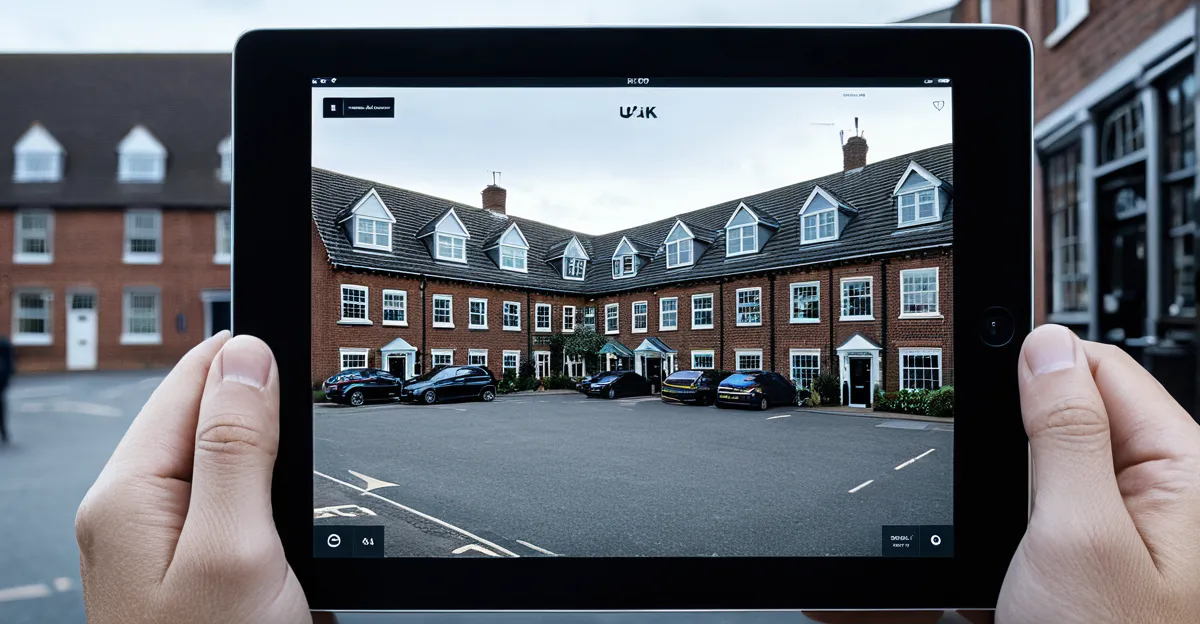Essential Criteria for Choosing a UK Business Location
Selecting the right business location factors is crucial for successful UK business setup. A primary consideration is the alignment between the location’s demographics and your target market. Understanding the local population’s age, income levels, and consumer behavior helps ensure your products or services resonate with nearby customers. For example, a retail store targeting young professionals will thrive in a bustling urban area rather than a rural town.
For retail and service businesses, foot traffic and visibility stand out as vital components in business site selection. High pedestrian flow increases spontaneous purchases and brand recognition. Locations near transport hubs, shopping centers, or busy streets typically offer these advantages, driving revenue and enhancing customer engagement.
Also to see : Unlocking success: strategies for uk businesses to thrive in a competitive market
Moreover, ease of access to skilled talent and workforce availability impacts daily operations and growth potential. Areas with universities or vocational training centers tend to have a rich pool of qualified candidates. This factor supports long-term sustainability, especially for sectors reliant on specialised skills.
Balancing these criteria builds a foundation for a strategic location that nurtures growth and connects effectively with your market and workforce.
In parallel : Top pitfalls to sidestep when launching a business in the uk
Analysing Local Competition and Market Demand
Understanding local competition analysis is vital for any business aiming to thrive. Start by identifying existing competitors in your area and assessing their market saturation. Are they meeting current customer needs, or is there room for innovation? This insight helps you position your offerings strategically.
Next, conduct thorough market research to evaluate untapped customer demand. Explore customer preferences and pain points through surveys or community feedback. These findings reveal opportunities often overlooked by competitors, enabling you to tailor your products or services accordingly.
UK business trends vary across regions, making it essential to analyze industry-specific trends in your locality. For instance, demand for tech solutions might surge in urban centers, while rural areas could prioritize essential services. Recognizing these nuances ensures your business remains relevant and competitive.
By combining local competition analysis with detailed market research, you can pinpoint gaps in your marketplace. This approach not only mitigates business risks but also fosters a customer-focused strategy aligned with evolving UK business trends. Ultimately, a well-informed market understanding is your foundation for success.
Transportation Links and Accessibility
Enhancing connectivity for efficient business operations
Strong transport links and excellent accessibility are crucial components of the UK’s transport infrastructure. Efficient connections via road, rail, and public transport not only facilitate staff commuting but also improve customer convenience. When businesses are located near major roads and rail networks, employees can travel with ease, reducing lateness and boosting productivity.
Proximity to logistics and delivery networks plays a vital role in smooth supply chain operations. Businesses close to motorways or rail freight hubs benefit from faster distribution, cutting delivery times and costs. This advantage can improve service quality and customer satisfaction.
Moreover, well-connected areas encourage public transport use, reducing traffic congestion and environmental impact. For employees and customers alike, access to buses, trains, and trams offers flexible travel options, promoting inclusivity.
In summary, businesses that prioritize transport links and accessibility within the UK transport infrastructure enjoy operational efficiency, attract a wider workforce, and enhance customer experiences, ensuring long-term success in competitive markets.
Cost Considerations and Financial Planning
Choosing a business location cost in the UK requires a strategic understanding of multiple financial factors beyond just rent. Commercial property costs vary widely depending on region, size, and accessibility, often influencing your overall budget substantially. For example, London and major cities typically carry higher commercial property costs compared to rural or suburban areas.
Additionally, business rates—a tax on property used for business purposes—represent a significant financial consideration. These are calculated based on the property’s rateable value and are payable to local councils. It’s crucial to factor in these levies alongside other local council fees that could affect your bottom line.
Beyond property and tax fees, budgeting for utilities and daily operating expenses is essential. Energy, water, and waste management costs can fluctuate and impact your UK business expenses significantly. Planning for these overheads ensures your business remains financially sustainable.
Understanding this range of costs upfront allows for better-informed decisions and healthier cash flow management. This holistic approach to financial planning safeguards against unexpected expenses and positions your business for long-term success.
Zoning, Legal, and Regulatory Factors
Navigating UK zoning laws is crucial when establishing or expanding a business. These laws determine how properties in different areas can be used, distinguishing between residential, commercial, and industrial purposes. Understanding commercial zoning restrictions helps ensure that your chosen location is viable for business activities, preventing costly violations.
Beyond zoning, legal requirements such as licensing and planning permissions often dictate whether a business can operate in a specific location or make certain modifications. For example, obtaining the correct planning permission is essential before converting a property to commercial use or undertaking structural changes. Failure to comply can lead to fines or forced closures.
Additionally, businesses must adhere to environmental and health regulations. Compliance with these rules includes managing waste disposal responsibly, minimizing noise pollution, and ensuring workplace safety. Ignoring these can harm your reputation and lead to stricter enforcement actions. Keeping up-to-date with local regulations not only fosters business compliance but also helps maintain community trust, paving the way for smoother operations and long-term success.
Supplier, Customer and Partner Proximity
Proximity to suppliers plays a crucial role in reducing delivery and supply chain lead times. When businesses are located near their suppliers, they can quickly receive raw materials or products, minimizing delays caused by shipping or customs. This closeness allows for more agile inventory management and faster order fulfillment, directly improving operational efficiency.
Customer reach also benefits significantly from geographic proximity. Being close to customers enhances communication and response times, enabling businesses to address inquiries or issues swiftly. This proximity fosters stronger relationships and trust, as customers feel valued when service is prompt and personalized.
In addition, collaborating with local partners broadens the business network and creates opportunities for joint growth. Close partnerships facilitate easier coordination and resource sharing, which can lead to innovative solutions and cost savings. Engaging with nearby businesses strengthens community ties and supports a more resilient ecosystem that benefits all parties involved.
Overall, focusing on supplier, customer, and partner proximity optimizes both operational workflows and relationship management, driving sustainable success.
Leveraging Regional Incentives and Government Support
Understanding the array of UK business grants, regional incentives, and government support is crucial for businesses looking to expand or innovate. The UK government offers a variety of grants and tax reliefs designed to reduce operating costs and encourage growth. For example, enterprise zones provide businesses with tax discounts and simplified planning rules, making them attractive locations for startups and expanding companies.
Local councils and business hubs play a vital role in delivering government support at the regional level. These bodies offer tailored advice, networking opportunities, and sometimes direct financial assistance to help businesses capitalize on available grants. They often act as gateways, guiding businesses through complex application processes, increasing the chances of securing funding.
Successful UK businesses use these incentives strategically. Leveraging regional incentives can mean access to funding that accelerates product development or facilitates entry into new markets. Importantly, combining these resources with private investment can multiply their impact, resulting in sustained growth and competitive advantage. For enterprises seeking to thrive, understanding and utilizing these regional incentives and government support mechanisms is an essential part of the journey.
Practical Checklist for Evaluating Business Locations in the UK
Selecting the right site requires a clear business location checklist tailored to your needs. Begin by analyzing the target market’s proximity, ensuring your location offers convenient access to customers. Consider transport links, including public transit and major roads, which are critical for both customer footfall and supply chain efficiency.
Evaluate local competition carefully to find balance—too crowded markets can limit growth, while isolated areas might reduce visibility. Assess local labor availability to support your operations with qualified staff.
Avoid common pitfalls such as neglecting regulatory requirements or underestimating costs related to utilities, taxes, and permits. A thorough UK location evaluation must include checking zoning laws and environmental restrictions to prevent costly legal issues later.
Utilize a structured decision guide that scores locations based on key factors: accessibility, cost, market potential, and compliance. This method ensures objective comparison rather than emotional choice.
For those seeking more detailed insight, government websites and business support organizations offer valuable data and tools to refine your location research. Always supplement your checklist with up-to-date, local information to make an informed, strategic decision.






